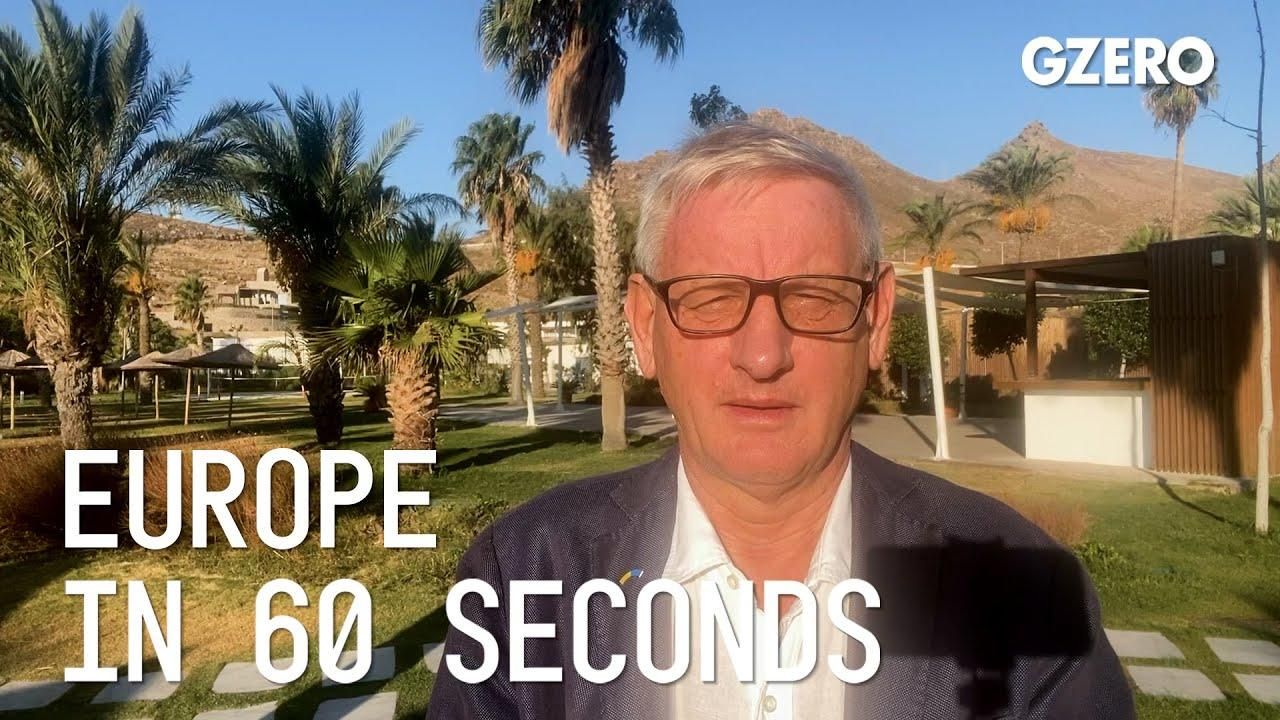GZERO Europe
Following Ukraine’s Crimea bridge attack, expect Putin to escalate "until he collapses"

Ukraine’s Bridge Attack on Putin’s 70th Birthday Can Have Consequences | Europe In :60 | GZERO Media

Carl Bildt, former prime minister of Sweden, shares his perspective on European politics from Bodrum, Turkey.
What is happening with the war in Ukraine?
Well, most spectacular was, of course, the Ukrainian attack against the bridge over the Kerch Strait, linking Russia proper and Crimea that the Ukrainians carried out on Mr. Putin's 70th birthday. The mood must have been very somber in the Kremlin when they saw the videos of that particular attack. But Mr. Putin is likely to escalate. I think he will escalate until he collapses. And I hate, have to say that I fear that also nuclear weapons at some point in time might be part of his efforts in that particular respect.
What was this European Political Community that met in Prague?
It was a French initiative, but the idea was to get all of the leaders of Europe, irrespective of membership of the European Union and all, to around the table and discuss common problems and as such, it has succeeded. The British Prime Minister turned up and met with EU leaders. Turkish president turned up, and quite a number of others. Everyone except Russia and Belarus was around the table and that was a powerful signal, even more important. The next meeting's going to be now in Moldova. That really needs our support.
In this episode of GZERO Europe, Carl Bildt examines how an eventful week in Davos further strained transatlantic relations and reignited tensions over Greenland.
In this Quick Take, Ian Bremmer addresses the killing of Alex Pretti at a protest in Minneapolis, calling it “a tipping point” in America’s increasingly volatile politics.
30,000: The estimated death toll in Iran during the protests at the start of the year, per local health officials, underscoring the scale of the Islamic Republic’s crackdown on its own citizens.